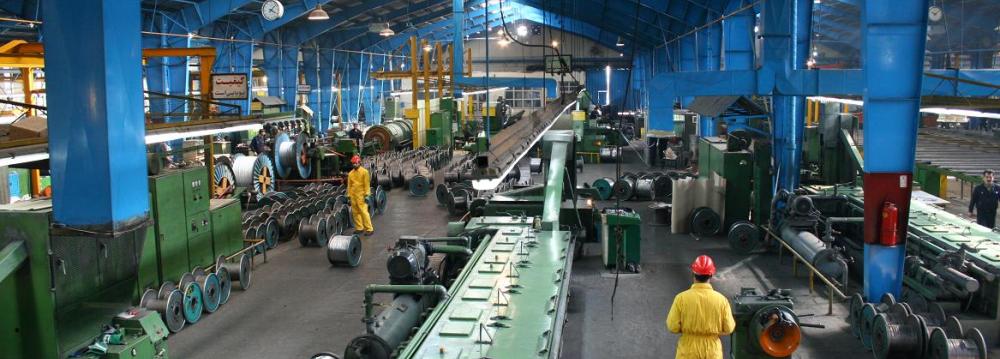Iran’s business environment has secured a modest improvement in the fourth quarter of the current fiscal year (Dec. 22, 2018-March 20) compared with the previous quarter, but a downturn over the same quarter of the year before, the latest quarterly survey by Iran Chamber of Commerce, Industries, Mines and Agriculture announced.
Iran’s National Business Environment Index stood at 6.27 points in Q4, registering a decrease of 3.39% compared with the preceding quarter and an increase of 8.18% year-on-year.
The index calculated by ICCIMA measures business friendliness of Iran’s economy, with 10 indicating the worst grade, which suggests that the growth of index is indicative of a deteriorating business environment.
“Unpredictability and fluctuations of raw material prices”, “uncertainty about policies, rules, regulations and business formalities”, and “difficulties in getting credit” were the most undesirable factors affecting Iran’s business environment during the period, according to the 2,581 respondents of the survey.
Iran’s National Business Environment Index stood at 6.49 in Q3 (autumn) of fiscal 2018-19 and 5.8 in Q4 (winter) of fiscal 2017-18.
In fact, “unpredictability and fluctuations of raw material prices” have been the most unfavorable factor in Iran’s business environment over the past six quarters.
On the other hand, “access to water”, “access to electricity, gas and diesel” and “access to Internet and mobile phone network” were identified as the three most prominent factors in improvement of the business environment.
The chamber also measures the index for each of the 31 Iranian provinces. The report named Sistan-Baluchestan, Alborz and Kurdestan as the provinces with the least favorable environment to do business in, while Gilan, West Azarbaijan and Zanjan provinces were considered the best.
The services sector had the worst business environment (6.31) in Q4 followed by agricultural (6.21) and industrial sectors (6.2).
As for different fields of business, the worst three were “administrative and support services”, “water and wastewater management, sewage treatment” and “human health and social work”.
The top tier included “finance and insurance”, “construction” and “accommodation and food services”.
Enterprises with 50 to 100 employees had the best business environment while those with 101 to 200 employees fared worst.
Businesses established 11 to 15 years ago had the worst business environment while those under two years were the best.
World Bank’s Ease of Doing Business Report
The ICCIMA index is fashioned after World Bank’s “Ease of Doing Business” index.
The latest such report (Ease of Doing Business Report 2019) showed Iran’s ease of doing business score improved by 2.34 percentage point, though its ranking among 190 economies under review fell by four places to 128th.
The country’s overall distance to frontier score was put at 56.98, compared to last year’s 54.64. An economy’s distance to frontier is indicated on a scale of 0 to 100, where 0 represents the lowest performance and 100 the frontier.
Iran was ranked 173rd, with a score of 67.79 on ease of starting a business, indicating a 0.02 percentage point improvement compared with the previous report. It takes 10.5 procedures, 72.5 days and 1.2% of per capita income to start a business in Iran.
Iran’s ranking on ease of getting construction permits stood at 86th with a score of 69.11, indicating a 0.52 percentage point improvement. Construction permits in Iran require 16 procedures, takes 130 days and costs 6.6% of the warehouse value.
Getting an electricity connection in Iran requires six procedures, takes 77 days and costs 923.1% of per capita income, placing the country at 108th position. The country scored 68.86 in getting electricity, which shows an improvement of 0.43 percentage point.
Iran ranked 90th in the ease of registering property with a score of 63.98 compared to last year’s 63.97. Registering a property in Iran requires six procedures, takes 31 days and costs 5.7% of the property value.
Iran ranked 99th on the ease of getting credit with a score of 50, indicating no change.
The country ranked 173rd on the strength of minority investor protection index with a score of 33.33, which shows no change.
On average, firms in Iran make 20 tax payments a year, spend 216 hours a year filing, preparing and paying taxes, and pay total taxes amounting to 44.7% of their profit, placing the country at 149th among 190 states. Iran's score in this area was 56.78, registering an improvement of 4.17 percentage points compared to 2018.
The World Bank said Iran made tax payment easier by introducing an online system for filing social security contributions, allowing the possibility of filing value added tax refund claims online, amending corporate income tax returns online and making the payment of additional tax liability at the bank.
According to data collected by Doing Business, documentary compliance for export takes 33 hours and $60. Border compliance for exports takes 101 hours and costs $415. Documentary compliance for import takes 40 hours and costs $90. Border compliance for import takes 141 hours and costs $660.
Globally, Iran stood at 121st spot in the ease of trading across borders, with a score of 66.2, posting an improvement of 18.32 percentage points; the most significant improvement affecting one of 10 areas of a business in Iran measured between June 2017 and May 2018.
Iran made exporting and importing easier by enhancing the national trade single window, the World Bank report said.
“The Islamic Republic of Iran has invested in training customs officials, setting up ‘expert pools’ of customs officials with technical training who are responsible for electronic goods clearance, as assigned by the national single window,” it read.
Iran ranked 89th with a score of 58.21, which indicates no change over the last fiscal year. Contract enforcements in Iran take 505 days, costing 19.3% of the value of the claim.
Finally, Iran ranked 131st in the ease of resolving insolvency ranking, for which arbitration takes 1.5 years on average and costs 15% of the debtor’s assets. No change in Iran’s resolving insolvency score was reported by the World Bank.


